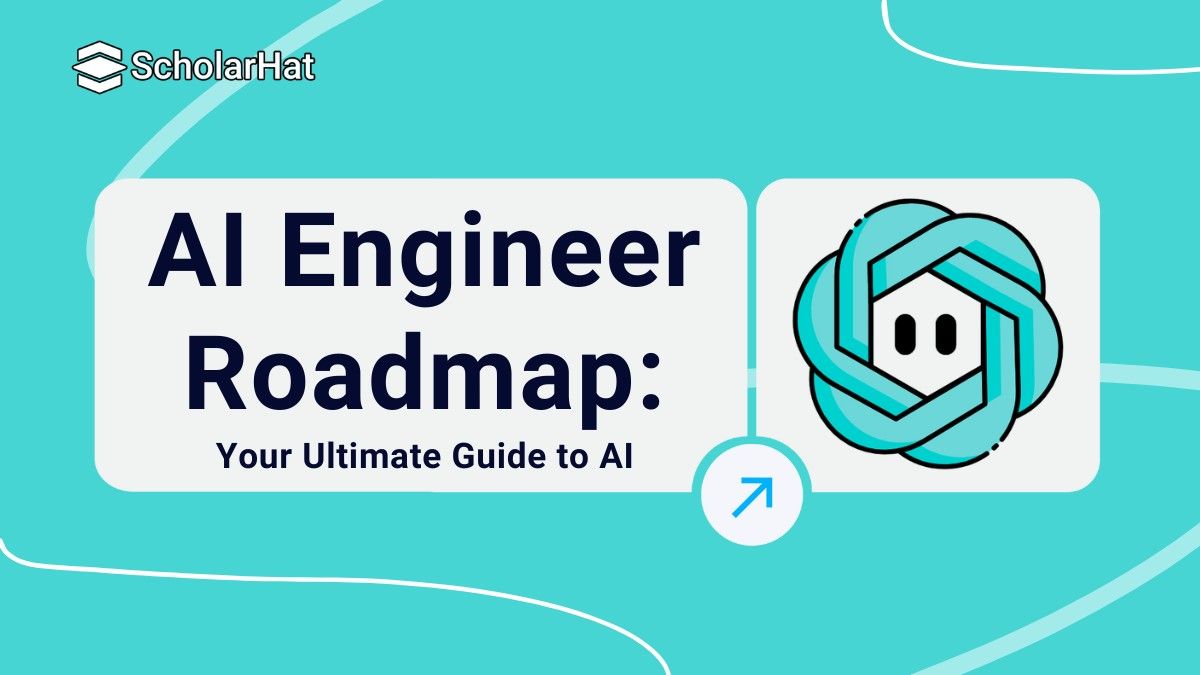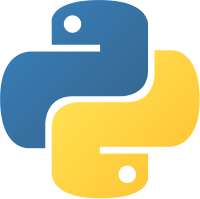13
FebAI Engineer Roadmap: The Ultimate AI Engineer Roadmap for 2025
An AI Engineer's career path in India usually begins with entry-level roles like Data Analyst or Machine Learning Engineer and gradually moves toward advanced roles such as Lead AI Engineer or AI Architect. The journey starts with building strong skills in programming, mathematics, and machine learning. As you grow, you will learn advanced AI areas like deep learning, computer vision, and natural language processing using tools like Azure AI or TensorFlow.
In this AI tutorial, we will explore a complete roadmap for becoming an AI Engineer in India with a step-by-step path based on skills, tools, and practical experience required at each level. Start your AI journey with Free Azure AI-900 Certification which is perfect for building foundation knowledge.
What Is an AI Engineer?
An AI engineer is a professional who designs, develops, and implements AI models and intelligent systems. Their work bridges the gap between theoretical research and real-world applications, ensuring that machine learning and deep learning models are not only accurate but also scalable, reliable, and ethical.
Key Responsibilities
- Designing and Training Machine Learning Models: Developing algorithms that can learn from data and make predictions or decisions.
- Deploying AI Solutions: Integrating AI models into production environments, often using cloud platforms like AWS, Azure, or Google Cloud.
- Collaborating with Cross-Functional Teams: Working alongside data scientists, software engineers, and business stakeholders to deliver impactful solutions.
- Ensuring Ethical AI Practices: Addressing issues of bias, fairness, and transparency in AI systems.
Why Become an AI Engineer?
Artificial Intelligence is transforming industries and opening up exciting career opportunities. If you're considering a future in tech, here’s why AI engineering is a smart choice.
- High Demand: AI skills are in strong demand across sectors. According to LinkedIn, roles in AI and Machine Learning have grown by 74% annually. From startups to global enterprises, companies are actively hiring AI professionals to lead innovation.
- Competitive Salaries: AI engineers are among the highest-paid professionals in the tech industry. - In India, average salaries range from ₹10 to ₹40 LPA, depending on experience. - In the US, salaries typically start around $120,000 per year and can go much higher for specialized roles.
- Diverse Applications: AI is being used in healthcare, finance, retail, manufacturing, education, and more. Whether it’s diagnosing diseases, preventing fraud, or automating customer support, AI engineers work on solutions that impact millions of lives.
- Continuous Learning: AI is a fast-evolving field. New tools, models, and technologies emerge constantly, offering endless learning opportunities. It’s a great fit for those who enjoy solving problems and staying ahead of the curve.
The AI Engineer Roadmap: Step-by-Step
Below is a step-by-step breakdown of the AI engineer roadmap, covering education, skills, practical experience, and career advancement.
AI Engineer Roadmap
Step 1: Foundational Education
High School Preparation
A strong foundation in mathematics, physics, and computer science is essential for aspiring AI engineers. Focus on:
- Algebra and Calculus: Fundamental for understanding machine learning algorithms.
- Probability and Statistics: Crucial for data analysis and model evaluation.
- Computer Science Basics: Introductory programming and logic.
Undergraduate Degree
Most AI engineers hold a bachelor’s degree in a related field. Recommended disciplines include:
- Computer Science
- Data Science
- Electrical or Computer Engineering
- Mathematics or Statistics
During your undergraduate studies, take courses in:
- Programming (Python, Java, C++)
- Data Structures and Algorithms
- Machine Learning Fundamentals
- Database Management
- Software Engineering
Graduate Degree (Optional)
While not always required, a master’s degree or PhD can provide a competitive edge, especially for specialized roles in research or advanced AI development. Graduate programs often cover:
- Advanced Machine Learning
- Deep Learning
- Natural Language Processing (NLP)
- Computer Vision
- AI Ethics and Governance
Step 2: Core Skills and Knowledge Areas
To excel as an AI engineer, you must develop a diverse set of technical and soft skills.
Technical Skills
| Skill Area | Description |
| Programming | Proficiency in Python (most common), R, Java, or C++ |
| Mathematics | Strong grasp of linear algebra, calculus, probability, and statistics |
| Machine Learning | Understanding of supervised, unsupervised, and reinforcement learning algorithms |
| Deep Learning | Experience with neural networks, TensorFlow, PyTorch, Keras |
| Data Handling | Skills in data collection, cleaning, preprocessing, and visualization |
| Cloud Platforms | Familiarity with AWS, Azure, Google Cloud for scalable AI solutions |
| MLOps | Knowledge of model deployment, monitoring, and maintenance |
| AI Ethics | Awareness of bias, fairness, and ethical implications in AI systems |
Soft Skills
- Problem-Solving: Ability to tackle complex challenges and find innovative solutions.
- Collaboration: Working effectively with cross-functional teams.
- Communication: Clearly explaining technical concepts to non-technical stakeholders.
- Continuous Learning: Staying updated with the latest advancements in AI.
Step 3: Practical Experience and Portfolio Building
Hands-on experience is crucial for aspiring AI engineers. Here’s how you can build your skills and portfolio:
Personal Projects
Develop your own AI projects to showcase your abilities. Popular project ideas include:
- Chatbots: Build conversational agents using NLP techniques.
- Recommendation Systems: Create systems that suggest products, movies, or music.
- Predictive Models: Develop models to forecast stock prices, weather, or customer behavior.
- Computer Vision Applications: Build image recognition or object detection systems.
If you have experience with website development or UI design, consider integrating your AI models into web applications using HTML, CSS, JavaScript, and frameworks like Flask or Django[1][2].
Internships
Gain real-world experience by interning at tech companies, startups, or research labs. Internships provide:
- Exposure to industry best practices
- Opportunities to work on live projects
- Networking with professionals in the field
Hackathons and Competitions
Participate in AI and machine learning competitions (e.g., Kaggle, DrivenData) to:
- Test your skills against peers
- Learn from others’ approaches
- Build a competitive portfolio
Open Source Contributions
Contribute to open-source AI projects on platforms like GitHub. This demonstrates:
- Collaboration skills
- Ability to work with large codebases
- Commitment to the AI community
Step 4: Advanced Topics and Specializations
To stand out in the field, consider specializing in one or more advanced areas:
Natural Language Processing (NLP)
NLP focuses on enabling computers to understand and generate human language. Key topics include:
- Language Models (e.g., GPT, BERT)
- Sentiment Analysis
- Machine Translation
- Chatbot Development
Computer Vision
Computer vision involves teaching machines to interpret visual information. Applications include:
- Image Recognition
- Object Detection
- Facial Recognition
- Video Analysis
Generative AI
Generative AI creates new content, such as images, text, or music. Examples include:
- AI-generated Art
- Text-to-Image Models (e.g., DALL-E)
- Music Generation
AI for Business
Understanding how AI drives business value is essential for career growth. Explore:
- AI in Finance: Fraud detection, algorithmic trading, risk assessment.
- AI in Healthcare: Medical imaging, drug discovery, patient monitoring.
- AI in Retail: Personalized recommendations, inventory management, customer service.
Step 5: MLOps and Model Deployment
MLOps (Machine Learning Operations) is the practice of deploying, monitoring, and maintaining AI models in production. Key aspects include:
- Model Deployment: Using tools like Docker, Kubernetes, and cloud services to deploy models.
- Monitoring: Tracking model performance and detecting issues in real-time.
- Maintenance: Updating models to ensure accuracy and relevance.
Popular MLOps Tools
| Tool/Platform | Purpose |
| Docker | Containerization for deployment |
| Kubernetes | Orchestration of containers |
| MLflow | Experiment tracking |
| TensorFlow Serving | Model serving |
| AWS SageMaker | End-to-end ML on AWS |
| Azure ML | ML workflows on Azure |
| Google Vertex AI | ML on Google Cloud |
Step 6: Cloud Platforms for AI
Cloud platforms are essential for scalable, cost-effective AI solutions. The major providers are:
- Amazon Web Services (AWS): Offers SageMaker, Lambda, and other AI services.
- Microsoft Azure: Provides Azure Machine Learning, Cognitive Services, and more.
- Google Cloud Platform (GCP): Features Vertex AI, AutoML, and TensorFlow integration.
Each platform offers tools for data storage, model training, deployment, and monitoring.
Step 7: AI Ethics and Responsible AI
As AI systems become more pervasive, ethical considerations are paramount. AI engineers must address:
- Bias and Fairness: Ensuring models do not discriminate against certain groups.
- Transparency: Making AI decisions explainable to users.
- Privacy: Protecting user data and complying with regulations (e.g., GDPR).
- Accountability: Taking responsibility for AI outcomes.
Step 8: Continuous Learning and Community Engagement
The field of AI engineering evolves rapidly. To stay ahead, engage in:
- Online Courses and Workshops: Platforms like Scholarhat offer specialized AI courses.
- Research Papers: Read the latest findings from conferences like NeurIPS, ICML, and CVPR.
- AI Conferences and Meetups: Network with peers and learn about cutting-edge developments.
- AI Communities and Forums: Join groups on LinkedIn, Reddit, or specialized forums to share knowledge and seek advice.
Step 9: Career Opportunities and Growth
AI Certification can pursue a variety of roles, including:
- AI Developer
- Machine Learning Engineer
- Data Scientist
- AI Architect
- Research Scientist
Salary Expectations
Salaries for AI engineers vary by location, experience, and specialization. Entry-level positions typically start at $80,000 to $120,000 annually, which is approximately ₹66 to ₹99 lakhs per year, while senior roles can exceed $150,000, translating to over ₹1.2 crore annually.
Job Search Tips
- Build a Strong Portfolio: Showcase your projects, internships, and open-source contributions.
- Network with Professionals: Attend industry events and connect on LinkedIn.
- Prepare for Technical Interviews: Practice coding, machine learning, and system design questions.
- Stay Updated: Follow industry trends and emerging technologies.
Step 10: Best Practices for Aspiring AI Engineers
- Start Small: Begin with simple projects and gradually tackle more complex challenges.
- Learn by Doing: Hands-on experience is more valuable than theoretical knowledge alone.
- Seek Feedback: Share your work with peers and mentors to improve.
- Stay Curious: The field is always changing embrace lifelong learning.
Summary
In conclusion, the AI Engineer roadmap provides a clear path for anyone looking to build a successful career in the fast-growing field of artificial intelligence. From gaining foundational knowledge to mastering advanced skills like machine learning, deep learning, natural language processing, and AI deployment on cloud platforms, this step-by-step guide equips you with the tools needed to thrive. To gain a deeper understanding of AI fundamentals and advance your career, consider enrolling in Top 1% Developer with Gen AI Program.
Begin your AI journey now and become a future-ready AI Engineer with ScholarHat Azure AI Engineer Certification Training and Azure AI Foundry Training to take your AI skills to the next level.
FAQs
Take our Artificialintelligence skill challenge to evaluate yourself!

In less than 5 minutes, with our skill challenge, you can identify your knowledge gaps and strengths in a given skill.







